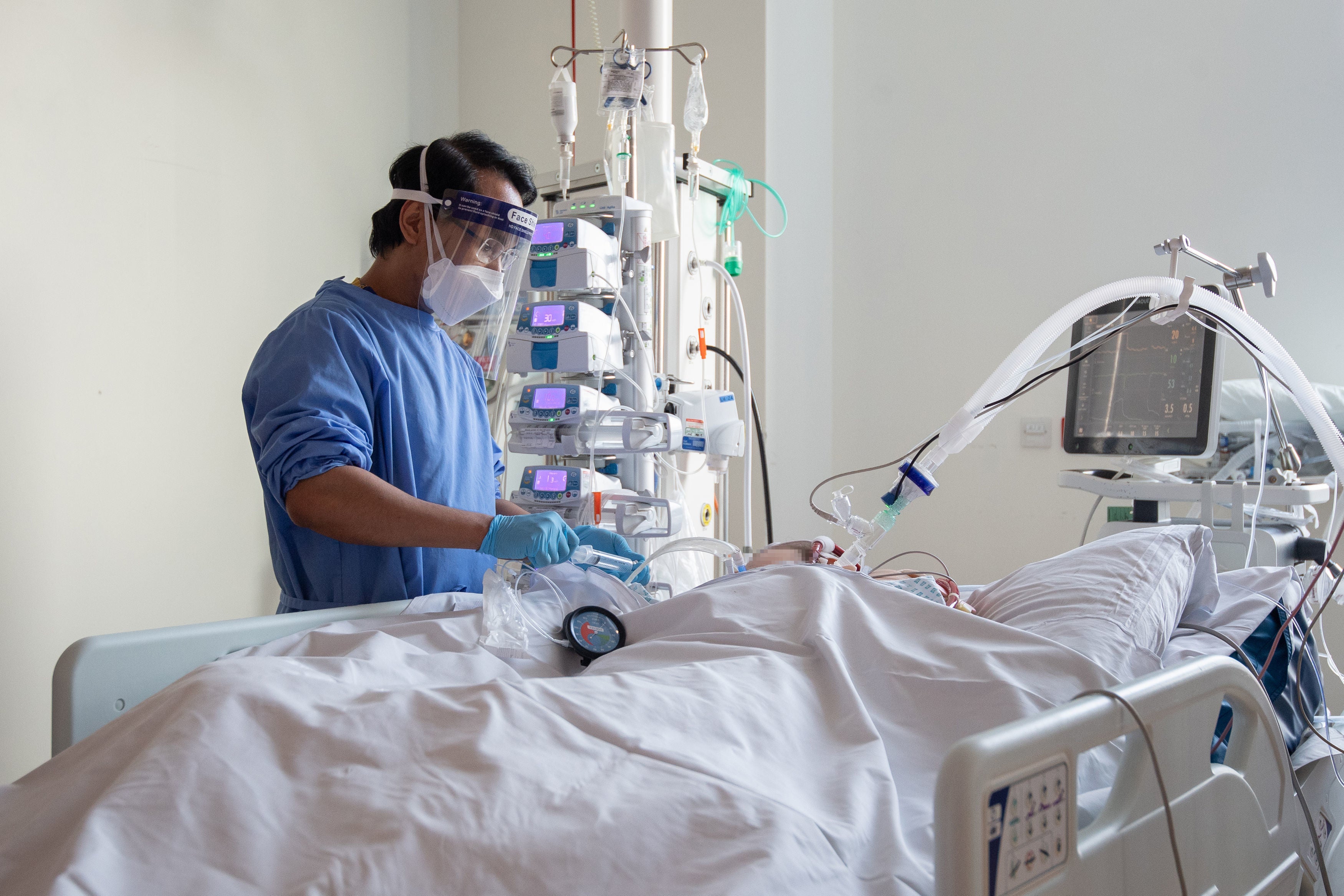UK trial scores another win against Covid as study shows benefit of antibody treatment in sickest patients
Latest research shows treatment can cut risk of death, hospital stay and chances of needing a ventilator

Your support helps us to tell the story
From reproductive rights to climate change to Big Tech, The Independent is on the ground when the story is developing. Whether it's investigating the financials of Elon Musk's pro-Trump PAC or producing our latest documentary, 'The A Word', which shines a light on the American women fighting for reproductive rights, we know how important it is to parse out the facts from the messaging.
At such a critical moment in US history, we need reporters on the ground. Your donation allows us to keep sending journalists to speak to both sides of the story.
The Independent is trusted by Americans across the entire political spectrum. And unlike many other quality news outlets, we choose not to lock Americans out of our reporting and analysis with paywalls. We believe quality journalism should be available to everyone, paid for by those who can afford it.
Your support makes all the difference.Scientists have found a new way to help save the lives of the sickest coronavirus patients while reducing their stay in hospital and their chances of needing a ventilator.
Giving patients who have yet to develop an immune response to the virus an infusion of antibodies cloned in a lab reduces the risk of death and other outcomes, the latest results from the UK’s landmark Recovery trial has confirmed.
The findings could pave the way for Regeneron’s monoclonal antibody treatment to be approved by UK regulators and rolled out for use across the NHS.
Professor Sir Martin Landray, from the University of Oxford and one of the leads for the Recovery trial, said the risk of dying after 28 days following an infusion of Regeneron was reduced by a fifth among patients with no antibodies.
This meant mortality fell from 30 per cent to 24 per cent, or the equivalent of six lives saved for every 100 patients treated.
The study also found that hospital stays were cut by four days and patients had a reduced chance of needing a ventilator in intensive care.
Sir Martin said: “This is a first, as a result. This is an antiviral treatment that is used late on because these patients are severe, they got into hospital, and it has a demonstrated clear impact on survival and on those other outcomes.
“So in its own right, it’s an important result because these patients are among the sickest patients. And here we now have a treatment, we did not have before.”
In total, 9,785 patients were included in the study, of which around a third were said to be seronegative or had no natural antibodies. Half had some level of antibodies, and another sixth of the patients had an unknown status.
The therapy is given as an infusion with a high dose of two different types of antibodies against the Covid-19 virus that were cloned and developed in a lab.
The treatment is thought to cost several thousand pounds per dose but the technique is not new to medicine. There are about 100 monoclonal antibody treatments for cancer and other inflammatory diseases.
The technique has shown a benefit against Ebola, which prompted drug companies to explore options against Covid-19.
Sir Simon Stevens, the chief executive of NHS England, said on Tuesday that he wanted to see the treatment given to patients in the community via community services to try to prevent patients deteriorating to the stage that they need to be taken to hospital.
Sir Peter Horby, a professor of emerging infectious diseases at the University of Oxford and lead investigator for the Recovery trial, said: “These results are very exciting. The hope was that by giving a combination of antibodies targeting the Sars-CoV-2 virus we would be able to reduce the worst manifestations of Covid-19. There was, however, great uncertainty about the value of antiviral therapies in late-stage Covid-19 disease.
“It is wonderful to learn that even in advanced Covid-19 disease, targeting the virus can reduce mortality in patients who have failed to mount an antibody response of their own.”
The Recovery trial has recruited 40,000 patients to take part in randomised controlled trials to study the effectiveness of Covid-19 treatments and has been hailed as a world-leading example after it discovered the benefits of using the cheap and widely available steroid dexamethasone, which helped cut deaths and severe hospital stays and has since been adopted around the world.
Join our commenting forum
Join thought-provoking conversations, follow other Independent readers and see their replies
Comments